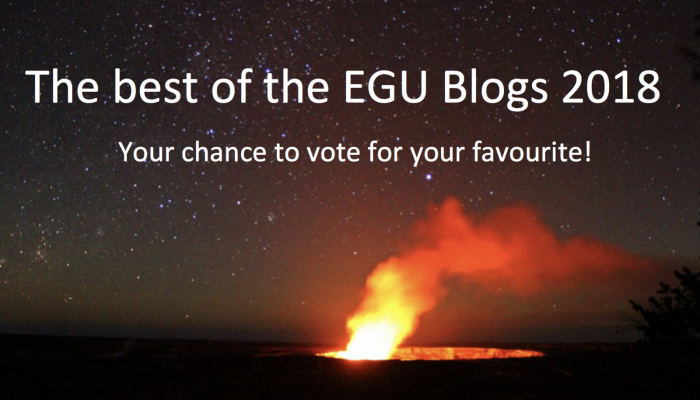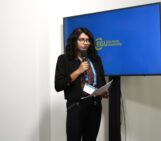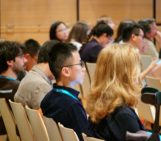
The past 12 months has seen an impressive 382 posts published across the EGU’s official blog, GeoLog, as well as the network and division blogs. From an Easter-themed post on the convection of eggs, features on mental health in academia, commentary on the pros and cons of artificial coral reefs, advice on presenting research at conferences, through to a three-part “live-series” on the Arctic Ocean 2018 expedition, 2018 has been packed full of exciting, fun, insightful and informative blog posts.
EGU Best Blog Post of 2018 Competition
To celebrate the excellent display of science writing across the network and division blogs, we are launching the EGU Blogs competition.
We’ve asked our blog editors to put forth their favourite post of the year in the running to be crowned the best of the EGU blogs. From now until Monday 14th January, we invite you, the EGU Blogs readers, to vote for your favourite post of 2018. Take a look at the poll below with the shortlisted posts, click on the titles to read each post in full, and cast your vote for the one you think deserves the accolade of best post of 2018. The post with the most votes by will be crowned the winner of the public vote. EGU blog editors and staff will also choose their favourites; the post with the most votes from this group will be deemed the winner of the panel vote.
New in 2018
Not only have the blogs seen some great writing throughout the year, they’ve also continued to keep readers up to date with news and information relevant to each of our scientific divisions.
The portfolio of division blogs has expanded this year, with the addition of the Natural Hazards (NH) and the Stratigraphy, Sedimentology and Palaeontology (SSP) blogs last December and March respectively. Since then, they’ve featured posts on many interesting topics, including xenoconformity, research on how bacteria slime can change landscapes, documenting the lives of people exposed to volcanic risk, and geoethics.
Get involved
Are you a budding science writer, or want to try your hand at science communication? All the EGU Blogs, from GeoLog (the official EGU blog), through to the network and division blogs, welcome guest contributions from scientists, students and professionals in the Earth, planetary and space sciences.
It couldn’t be easier to get involved. Decide what you’d like to write about, find the blog that is the best fit for your post and contact the blog editor – you can find all editor details on the individual blog pages. If in doubt, you can submit your idea for a post via the Submit a Post page on GeoLog, or email the EGU Communications Officer, Olivia Trani, who can help with initial enquiries and introduce you to individual blog editors.
Don’t forget to a look at the blog pages for a flavour of the content you can expect from the new, and existing, blogs in 2019. The blogs are also a great place to learn about new opportunities, exciting fields of research and keep up to date with news relating to the upcoming 2019 General Assembly.
Editor’s note on the EGU Best Blog Post of 2018 Competition: The winning post will be that with the most votes on 14th January 2019. The winner will be announced on GeoLog shortly after voting closes. The winning posts will take home an EGU goodie bag, as well as a book of the winners choice from the EGU library (there are up to 3 goodie bags and books available per blog. These are available for the blog editor(s) – where the winning post belongs to a multi-editor blog, and for the blog post author – where the author is a regular contributor or guest author and not the blog editor). In addition, a banner announcing the blog as the winner of the competition will be displayed on the blog’s landing page throughout 2019.




